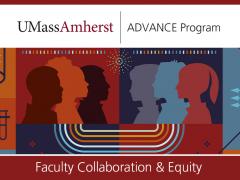A renowned breast surgeon, Kathie-Ann Joseph, MD, MPH, professor in the departments of Surgery and Population health, treats patients with breast cancer and benign breast tumors and people with a family history of breast cancer who are at high risk of developing the disease. At NYU Langone Health’s Perlmutter Cancer Center, she co-leads the Beatrice W. Welters Breast Health Outreach & Navigation program, which educates women about breast cancer and the critical importance of screening.
Dr Joseph recently became a Full Professor in the Department of Population Health and the first black woman to be promoted to Full Professor in the Department of Surgery. She was also named NYU Langone’s Senior Vice President for Diversity and Health Equity for the Department of Surgery and the NYU Langone Transplant Institute. She discusses her commitment to equity in cancer health, improving cancer care for under-represented populations, what inspires her, and more.
How do your recent promotions fit in with the Perlmutter Cancer Center’s initiative to improve health equity against cancer?
The roles all overlap and intersect with equity. The main thing I focus on is how to provide quality care to our patients, whether it is for the Department of Surgery and the Transplant Institute or for the entire NYU Langone Health System. Working with colleagues in my department and for the NYU Langone Health System, I try to integrate health equity into the way we manage the care of our patients. I see health equity as a foundation of quality – and quality has always been a priority for NYU Langone – and we cannot continue to provide the best quality as an institution if we don’t focus on it. equity in health.
By that I mean we have to know where we are going right and where we are going wrong. It means looking at equity in all aspects of health care. I’m not just talking about Manhattan, but the entire NYU Langone healthcare system as well, because then the patients who come to us will know they really matter. All of our patients matter.
That’s the whole scope, and looking at it broadly, we’re not leaving patients out. We can also reach populations that we may not have thought of before.
As a cancer surgeon who treats underrepresented patient populations, what do you think needs to be done to make improvements for these patients?
There is still a need, I believe, for patients from under-represented populations to have access to cancer centers designated by the National Cancer Institute (NCI) as the Perlmutter Cancer Center when they are diagnosed with cancer. In this type of center, the patient’s case will be discussed in a tumor board, and he will have access to multidisciplinary care. Patients should know that getting a second opinion is okay, that they are being treated by scholarship-trained physicians, surgeons and oncologists, and that they are part of a team. Now, patients may not be aware of this due to lack of education or knowledge or due to insurance issues.
There are barriers that can prevent patients from accessing academic cancer centers. These are some of the problems that in my career I have tried to solve. The Beatrice W. Welters Breast Health and Navigation program that I co-lead (with Joseph E. Ravenell, MD, associate professor in the departments of population health and Medication and co-lead of the Perlmutter Cancer Center’s outreach and community engagement program) helps bring these patients to cancer centers.
This is so important because a patient’s initial treatment is really going to dictate their outcome. And it’s important for patients to understand that while it may be acceptable to see a general surgeon at a non-NCI designated cancer center that treats many breast cancers, it may be helpful to find a surgeon with training. specific in this area. Region. For example, a person diagnosed with pancreatic cancer should see a surgeon or specialist who sees a high volume of this type of cancer, rather than someone who manages a small number of patients per year.
What Can a Person Seeking Care at Perlmutter Cancer Center Expect?
They need to know that the minute they walk into the Perlmutter Cancer Center, they are receiving the best care they can get anywhere in New York City, if not the country. They will be treated by the best specialist in their cancer, who will be part of a highly qualified multidisciplinary team.
Your mother died of cancer when you were an undergraduate student. How has this experience influenced your career and how you interact with cancer patients?
My mom was a nurse and she worked nights so she could be home during the day to make sure we were home after school and doing our homework. She had always prepared dinner for us. I’m grateful for it, and I think it played a big part in our success as adults.
However, she didn’t put her own health first, and I think a lot of women do. My mom couldn’t afford babysitting, but she attended all of our parent-teacher conferences and all of our extracurricular activities. And it had an impact on his health.
I wasn’t necessarily consciously thinking about it at the time this happened, but I think about it a lot when I think of my own patients who are immigrants like my mother. I often ask them what other factors are involved at home for them, their children and their jobs. I think it’s important to see patients as people and what’s going on and see how we can help them through their treatment. For people who might not want help when they are diagnosed, we need to find out why and figure out how we can help them, rather than assuming they are just ‘non-compliant’. They may have barriers that prevent them from starting treatment because they worry about their family or other responsibilities.
My mom went through all of her treatments and my family totally supported me, but I can see how not having this support could make it very difficult for someone to get cancer treatment because I have it. seen myself when I was a child.
Can you reflect on your relationship with the patients you have treated successfully?
This is the part I love about my job. With breast cancer, our patients are generally doing well, and we have seen our patients for a long time and are developing relationships with many of them. These are just a few of the most awesome people you will meet. I think they will tell you that cancer can really improve their lives. And that’s what I tell a lot of my patients with a new diagnosis. No one wants to be diagnosed with cancer, but any challenge in life can really force you to reassess what you do in your life and re-prioritize what is important. For example, one of my patients, LaToya Williams, is a young cancer survivor and now works for the American Cancer Society (ACS). She has done so much to improve the lives of other cancer survivors here in the New York City area through her programmatic efforts with ACS over the years.
I see this over and over again. I am amazed at the resilience of my patients and humbled by what they have overcome and all they have endured in their treatment. They are then able to give back in one way or another to help others. I think they’re the real heroes, honestly. They help other patients, they are willing to talk to some of my patients with new diagnoses, or they volunteer to participate in group sessions. It inspires me to keep doing my best.
 Xing Wu
Xing Wu



